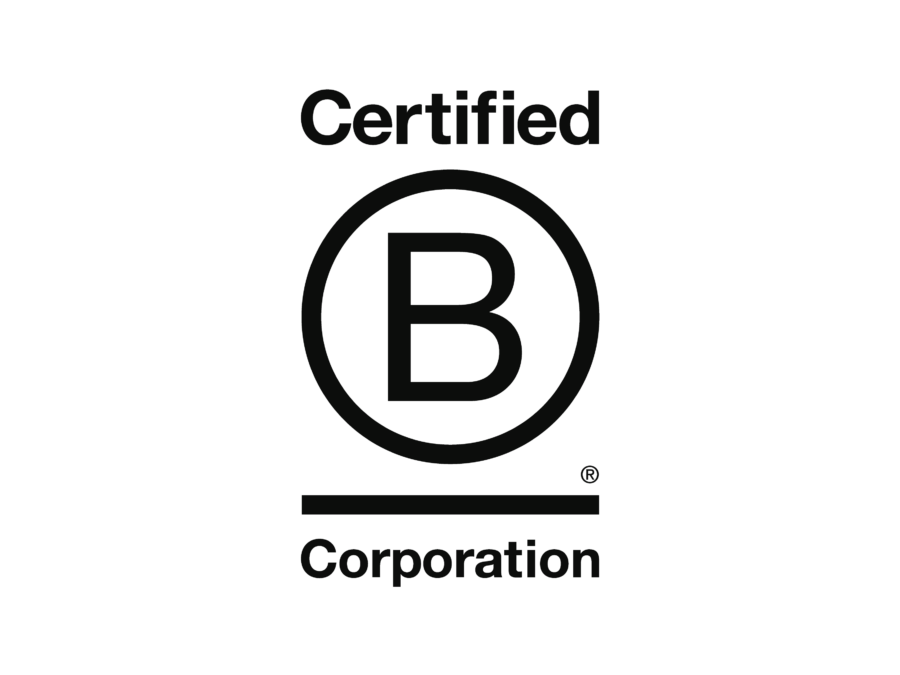Shared ownership, B Corporations and the "G" in ESG
Two movements; one shared mission?
If you’re prone to looking at the labels on your shampoo bottles or snacks from Whole Foods, you might have seen this symbol at some point:
The symbol means that the company has been evaluated by the B Lab, a third-party certification company that ensures that companies are living out their commitments to “an inclusive, equitable, and regenerative economy.” I remember seeing the logo for the first time in 2010 at GrayMatters Capital, which I think was the first B Lab-certified investment fund.
In the last few months, I’ve thought a lot about B Lab. It has seemed to me that employee ownership and B Lab movement grew in parallel, and that they had much more in common than has been taken advantage of, yet.
You can imagine I was excited, then, that B Lab sent a representative to our Purpose Trust Ownership Convening last month. And I listened intently this morning to this week’s episode of the ESOP Podcast featured Brian Taussig-Lux, former CEO of UnTours, the very first B Corporation:
To Brian’s knowledge, there were only two employee-owned B Corporations: King Arthur Baking Company (an ESOP) and Namaste Solar (a worker cooperative). Natural Investments became another when it converted to perpetual purpose trust ownership in 2023. A recent article from B Lab and an older one from NCEO point to even more.
Later this morning, I learned about the newest: Evenlode Investment, an employee-owned investment manager in the England, announced this week that it had a B Corporation. I also learned that last year, B Lab Europe hosted its own event focused on employee ownership.
If B Lab is about helping companies live out their values, and shared ownership is about making sure that the value created by a company is locked in and shared widely, might they be able to build off each other more strategically? RSF Finance’s Jasper van Brakel tackled this question in a February article worth reading in full. He starts swinging:
“If ESG is a foot in the door to an economy built around sustainability, inclusion and equity, then governance is the power that’s going to kick that door wide open and make way for real progress on corporate environmental and social performance.
… “We need to change who makes decisions more broadly, along with the interests they’re accountable to and the incentive structures they work within. If we want stakeholder capitalism, we need stakeholder governance.”
I took at look at the B Lab’s most recent draft standards to see how they are thinking about governance. Here are B Lab’s criteria for Purpose & Stakeholder Governance:
The company has a defined public purpose contributing to a material positive impact on society and the environment.
The company considers impacts on stakeholders in decision making.
The company has adequate grievance procedures to receive, respond, and seek resolution to stakeholder grievances.
The company manages marketing and communications activities responsibly.
The company’s highest governing body has an explicit oversight role in monitoring the company's social and environmental impact and stakeholder considerations.
The company is transparent about its social and environmental performance and its progress against the B Corp requirements.
It struck me that this section might be where the shared ownership rubber could meet the B Corporation road. Here are a few options based on principles from steward ownership and workplace democracy—offered humbly, as I know how hard it is to put together frameworks like this:
The company's legal structure and governing documents explicitly incorporate its stated public purpose and commitment to stakeholder consideration.
This could be through a benefit corporation (which B Lab helped develop), purpose trust ownership, or other forms of steward ownership
The company's highest governing body (e.g., board of directors) includes representation from stakeholder groups directly affected by the company's operations, such as employees, local communities, or relevant special interest groups.
This could be through purpose trust ownership or codetermination (stakeholders having board seats, like in Germany)
The company implements democratic decision-making processes that give stakeholders, especially employees, a formal role in shaping policies, practices, and strategic directions that affect them.
This could include open book management or other expressions of workplace democracy
The company's executive compensation and incentive structures are aligned with the achievement of its stated public purpose and stakeholder considerations.
This probably mean equity-sharing and/or profit-sharing
What would you change or add, dear reader? If you’d like to learn more, some other links I’ve found at the B Lab ↔ employee ownership intersection:
The Employee-Owned B Corp: An Enterprise Design for the 21st Century (from 2018)
Benefit corporations and employee ownership: A legal and ownership structure for the future (from 2022)
Two purpose trust experts, Natalie Reitman-White from Purpose Owned and Greg Curtis from Patagonia, sat on a SOCAP panel with B Lab’s Sarah Schwimmer last October





Also see "Mission-led employee-owned firms: The best of the best," from 2019. https://www.fiftybyfifty.org/2019/04/mission-led-employee-owned-firms-the-best-of-the-best-2/